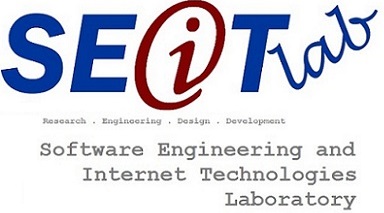I am a Lecturer at the Department of Computer Science and Engineering of the Frederick University of Cyprus teaching mainly the courses related to the area of Software, Web and Service Engineering. The focus of my work is on software architectures, design tools and techniques for engineering pervasive, service-oriented and adaptive systems. In fact, my research interests cover software, web and service engineering methods for pervasive computing, IoT and Smart Cities.

Journals
-
 [2022b] Achilleos, A., Mettouris, C., Yeratziotis, A. et al.
"Lessons Learned from Older Adults Fusing of an Augmented Reality, Assisted Living and Social Interaction Platform."
New Digital Technologies for Health, Accessibility and Wellbeing, Springer Nature Computer Science Journal, 4, 378 (2023)., Impact Factor: 3.781, H-Index: 25.
[2022b] Achilleos, A., Mettouris, C., Yeratziotis, A. et al.
"Lessons Learned from Older Adults Fusing of an Augmented Reality, Assisted Living and Social Interaction Platform."
New Digital Technologies for Health, Accessibility and Wellbeing, Springer Nature Computer Science Journal, 4, 378 (2023)., Impact Factor: 3.781, H-Index: 25.

-
 [2022a] Evangelia Vanezi, Thomas Photiadis, Alexandros Yeratziotis, Achilleas P. Achilleos, Christos Mettouris & George A. Papadopoulos,
"IDEA: A software toolkit for energy awareness",
Journal of Energy Sources, Part A: Recovery, Utilization, and Environmental Effects, DOI: 10.1080/15567036.2022.2026536, 2022, Impact Factor: 3.47, CiteScore: 3.4.
[2022a] Evangelia Vanezi, Thomas Photiadis, Alexandros Yeratziotis, Achilleas P. Achilleos, Christos Mettouris & George A. Papadopoulos,
"IDEA: A software toolkit for energy awareness",
Journal of Energy Sources, Part A: Recovery, Utilization, and Environmental Effects, DOI: 10.1080/15567036.2022.2026536, 2022, Impact Factor: 3.47, CiteScore: 3.4.

-
[2021b] Georgia M. Kapitsaki, Achilleas P. Achilleos, Philippos Aziz, and Athina C. Paphitou,
"SensoMan: Social Management of Context Sensors and Actuators for IoT",
Journal of Sensor and Actuator Networks 10, no. 4: 68, 2021, CiteScore: 6.2 .

-
[2021a] Achilleas Achilleos, Michalis Makrominas, Christos Markides, Rafael Alexandrou, Andreas Konstantinidis, Elena Papacosta, Panos Constantinides, Effie Zikouli and Leondios Tselepos,
"Promoting active sports tourism through technology and evaluating its economic impact: experiences from Cyprus,
Taylor & Francis, Journal of Sport & Tourism, (2021), CiteScore: 3.2 .

-
[2019a] Achilleas Achilleos, Kyriakos Kritikos, Alessandro Rossini, Georgia Kapitsaki, Jörg Domaschka, Michal Orzechowski, Daniel Seybold, Frank Griesinger, Nikolay Nikolov, Daniel Romero, George Papadopoulos,
"The Cloud Application Modelling and Execution Language",
Journal of Cloud Computing, Springer CLCO, 2019, Impact Factor: 2.959.

-
[2018a] Achilleas Achilleos, Christos Mettouris, Alexandros Yeratziotis, George A. Papadopoulos, Sabri Pllana, Florian Huber, Bernhard Jäger, Peter Leitner, Zsófia Ocsovszky, András Dinnyés,
"SciChallenge: A Social Media Aware Platform for Contest-Based STEM Education and Motivation of Young Students",
IEEE TRANSACTIONS ON LEARNING TECHNOLOGIES, IEEE TLT, 2018, Impact Factor: 3.324 .

-
[2016b] F. J. Garcia Penalvo, David Griffiths , Juan Cruz-Benito, Edwin Veenendaal, Achilleas Achilleos, Scott Wilson, Georgia Kapitsaki,
"Understanding the barriers to virtual student placements in the Semester of Code",
Education in the Knowledge Society, EKS Journal, vol. 17, n. 1, 2016.

-
[2016a] F. J. Garcia Penalvo, J. Cruz-Benito, D. Griffiths and A. Achilleos,
"Virtual Placements Management Process Supported by Technology: Proposal and First Results of the Semester of Code",
in IEEE RITA Journal, vol. 11, no. 1, pp. 47-54, Feb. 2016, (IEEE-RITA 2016) Impact Factor: 0.828 .

-
[2010b] A. Achilleos, K. Yang, N. Georgalas and M. Azmoodeh,
"Context Modelling and a Context-Aware Framework for Pervasive Service Creation: a Model-driven approach",
ELSEVIER Special Issue of Pervasive Mobile Computing (PMC) Journal, ISSN 1574-1192, 2010 Impact Factor: 3.504 .

-
[2010a] S. K. Samanta,A. Achilleos, S. R. F. Moiron, J. Woods and M. Ghanbari,
"Automatic Language Translation for Mobile SMS",
International Journal of Information Communication Technologies and Human Development (IJICTHD) 2(1), 2010, Pages: 16, DOI: 10.4018/jicthd.2010010103.
, Journal Page,

-
[2009a] N. Georgalas,A. Achilleos, V. Freskos and D.Economou,
"Agile Product Lifecycle Management for Service Delivery Frameworks: History, Architecture and Tools",
BT Technology Journal, Vol. 26, No.2, 2009.

Conferences
-
 [2023a] A. Kameas, A. Achilleos , G. Vonitsanos, F.Gatomati, P.Kyriakou,
"Enhancing ICT Skills of Management Educators With The OLMEdu MOOC And Toolkit", 26th Pan-Hellenic Conference on Informatics (PCI 2022), 2022.",
In 15th annual International Conference on Education and New Learning Technologies (EDULEARN 2023), Palma de Mallorca (Spain). 3rd - 5th of July, 2023. https://doi.org/10.21125/edulearn.2023.
[2023a] A. Kameas, A. Achilleos , G. Vonitsanos, F.Gatomati, P.Kyriakou,
"Enhancing ICT Skills of Management Educators With The OLMEdu MOOC And Toolkit", 26th Pan-Hellenic Conference on Informatics (PCI 2022), 2022.",
In 15th annual International Conference on Education and New Learning Technologies (EDULEARN 2023), Palma de Mallorca (Spain). 3rd - 5th of July, 2023. https://doi.org/10.21125/edulearn.2023.

-
 [2022d] G. M. Kapitsaki, A. Paphitou, A. P. Achilleos,
"Towards open source software licenses compatibility check",
In Proceedings of the 26th Pan-Hellenic Conference on Informatics (PCI '22). Association for Computing Machinery, New York, NY, USA, 96–101. https://doi.org/10.1145/3575879.3575973..
[2022d] G. M. Kapitsaki, A. Paphitou, A. P. Achilleos,
"Towards open source software licenses compatibility check",
In Proceedings of the 26th Pan-Hellenic Conference on Informatics (PCI '22). Association for Computing Machinery, New York, NY, USA, 96–101. https://doi.org/10.1145/3575879.3575973..

-
 [2022c] Alexandros Yeratziotis, Achilleas Achilleos , Stavroulla Koumou, Regan A. Thibodeau, Evangelia Vanezi, George Geratziotis, George A. Papadopoulos, Iasonos Iasonas and Christophoros Kronis,
"Accessible System and Social Media Mobile Application for Deaf Users: ASM4Deaf",
In Conference on Information Technology for Social Good (GoodIT'22), September 07-09, 2022, Limassol, Cyprus. ACM, New York, NY, USA, 14 Pages. https://doi.org/10.1145/3524458.3547234.
[2022c] Alexandros Yeratziotis, Achilleas Achilleos , Stavroulla Koumou, Regan A. Thibodeau, Evangelia Vanezi, George Geratziotis, George A. Papadopoulos, Iasonos Iasonas and Christophoros Kronis,
"Accessible System and Social Media Mobile Application for Deaf Users: ASM4Deaf",
In Conference on Information Technology for Social Good (GoodIT'22), September 07-09, 2022, Limassol, Cyprus. ACM, New York, NY, USA, 14 Pages. https://doi.org/10.1145/3524458.3547234.

-
 [2022b] Christos Mettouris, Evangelia Vanezi, George Zampas, Stylianos Argyrou, Achilleas Achilleos, Avgoustinos Constantinides and George A. Papadopoulos,
"CloudRecoMan: Cloud adoption made easy: A platform for assisting small and medium enterprises to adopt cloud solutions",
In Conference on Information Technology for Social Good (GoodIT'22), September 07-09, 2022, Limassol, Cyprus. ACM, New York, NY, USA, 12 Pages. https://doi.org/10.1145/3524458.3547252).
[2022b] Christos Mettouris, Evangelia Vanezi, George Zampas, Stylianos Argyrou, Achilleas Achilleos, Avgoustinos Constantinides and George A. Papadopoulos,
"CloudRecoMan: Cloud adoption made easy: A platform for assisting small and medium enterprises to adopt cloud solutions",
In Conference on Information Technology for Social Good (GoodIT'22), September 07-09, 2022, Limassol, Cyprus. ACM, New York, NY, USA, 12 Pages. https://doi.org/10.1145/3524458.3547252).

-
 [2022a] O. Tsivitanidou, C. Tsordia, A. Sotiropoulou, A. Achilleos,
"Distance learning and teaching in the field of Management Education in the post covid era: an exploration of the challenges arising for Higher Education Staff",
Abstract Paper, 5th International Conference Of Development And Economy - https://icodecon2022.uop.gr/, Kalamata, Greece, 21-23 October 2022.
[2022a] O. Tsivitanidou, C. Tsordia, A. Sotiropoulou, A. Achilleos,
"Distance learning and teaching in the field of Management Education in the post covid era: an exploration of the challenges arising for Higher Education Staff",
Abstract Paper, 5th International Conference Of Development And Economy - https://icodecon2022.uop.gr/, Kalamata, Greece, 21-23 October 2022.

-
[2021d] Kale Strahinja Lazic, Achilleas Achilleos, Stefan Parker, Christos Mettouris, Alexandros Yeratziotis, George A. Papadopoulos, Charalampos Theodorou and Karol Pecyna,
"GUIDed: An Augmented Reality Assisted-Living and Social Interaction Platform for Older Adults",
ICT for Health, Accessibility and Wellbeing (IC-IHAW 2021), Springer CCIS Proceedings, (2021).

-
[2021c] Achilleas Achilleos, Andreas Konstantinidis, Rafael Alexandrou, Christos Markides, Effie Zikouli, George Papadopoulos,
"A Web Platform and a Context Aware Recommender System for Active Sport Events",
21st International Conference on Innovations for Community Services, I4CS 2021, May 26 - 28, Bamberg, Germany, 2021.

-
[2021b] BEST PAPER AWARD: Christos Mettouris, Alexandros Yeratziotis, Charalampos Theodorou, Evangelia Vanezi,
Achilleas Achilleos, George Papadopoulos, Sotiria Moza, Marina Polycarpou, Joanna Starosta-Sztuczka, Karol Pecyna,
Terje Grimstad, Strahinja Lazic, "GUIDed: Assisted-Living Smart Platform & Social Communication for Older Adults",
21st International Conference on Innovations for Community Services, I4CS 2021, May 26 - 28, Bamberg, Germany, 2021.

-
[2021a] Achilleos, A., Hellman, R. and Sturmair, D.,
"A handful understandable pieces of advice for clean app interface design in lifestyle services by one button click",
5th international conference on Universal Design, UD2021, June 9 – 11 2021 at Aalto University, Espoo, Finland. Poster Sessions..

-
[2020b] Achilleas Achilleos, Christos Markides, Michalis Makrominas, Andreas Konstantinides, Rafael Alexandrou,
Effie Zikouli, Elena Papacosta, Panos Constantinides and Leondios Tselepos, "Evaluating the Economic Impact of Active Sports Tourism Events: Lessons Learned from Cyprus",
7th International Conference of the International Association of Cultural and Digital Tourism (IACuDiT), Springer Proceedings, Culture and Tourism in a Smart,
Globalized and Sustainable World, Hydra, 2-4 September..

-
[2020a] Georgia Kapitsaki, Alexia Dini Kounoudes and Achilleas Achilleos, "An overview of user privacy preferences modeling and adoption",
IEEE Euromicro Conference on Software Engineering and Advanced Applications (SEAA 2020), track ES-IoT: Embedded Systems and the Internet of Things, 2020 .

-
[2019a] Achilleas Achilleos, Christos Markides, Andreas Konstantinidis, Ioannis Giorkas, Georgia M. Kapitsaki, Christos Mettouris, George A. Papadopoulos,
"Adopting an Open Smart City Platform: A Survey",
IEEE International Smart Cities Conference (ISC2 2019), Track: ICT Technologies and Platforms for Smart Cities IEEE, 2019 .

-
[2018b] Christos Mettouris, Achilleas Achilleos, Georgia Kapitsaki and George Papadopoulos,
"A Model Driven Development Framework for Recommender Systems in Ubiquitous Environments for Commerce",
European Conference on Ambient Intelligence (AmI 2018), Towards a Smart and Human Centered Internet of Things, Springer, 2018 .

-
[2017d] Achilleas Achilleos, Kyriaki Georgiou, Christos Markides, Andreas Constantinides and George Papadopoulos,
"Adaptive Runtime Middleware: Everything as a Service",
9th International Conference on Computational Collective Intelligence, (ICCI 2017), Springer.

-
[2017c] Savvas Pericleous, Andreas Konstantinidis, Achilleas Achilleos and George Papadopoulos,
"Generic Hybridization of MOEA/D with Learning for Permutation Flow Shop Scheduling Problem",
IEEE Proceedings of the 8th International Conference on Information, Intelligence, Systems Applications (IISA 2017).

-
[2017b] Achilleas Achilleos, Alexandros Yeratziotis, Christos Mettouris and George Papadopoulos,
"Health Monitoring Web Platform for Real-Time Expert-User Interaction",
IEEE Proceedings of the 8th International Conference on Information, Intelligence, Systems Applications (IISA 2017).

-
[2017a] Christos Mettouris, Achilleas Achilleos, Alexandros Yeratziotis and George Papadopoulos,
"An Adaptive Integrated Environment for Assisted Living",
IEEE Proceedings of the 8th International Conference on Information, Intelligence, Systems Applications (IISA 2017).

-
[2016b] Marios Komodromos, Christos Mettouris, Achilleas P. Achilleos, George A. Papadopoulos, Martin Deinhofer, Christoph Veigl,Alfred Doppler and Stefan Schurz, "A Runtime Middleware for Enabling Application Integration and Rapid Re-Engineering", 15th International Conference on Intelligent Software Methodologies, Tools and Techniques, Springer, (SOMET 2016 -- accepted).

-
[2016a] BEST PAPER AWARD: Lukas Smirek, Gottfried Zimmermann, Christos Mettouris, Marios Komodromos, Achilleas Achilleos, George A. Papadopoulos, Daniel Ziegler and Michael Beigl, "Accessible Control of Distributed Devices Supporting People with Special Needs by Providing Adaptive Interaction", International Conference on Universal Accessibility in the Internet of Things and Smart Environments, (SA2016 -- accepted).

-
[2015c] Achilleas P. Achilleos, Georgia M. Kapitsaki, Eleni Constantinou, Geir Horn and George A. Papadopoulos, "Business-Oriented Evaluation of the PaaSage Platform" (short paper), 8th IEEE/ACM International Conference on Utility and Cloud Computing (UCC 2015).

-
[2015b] A.P. Achilleos, M. Thoma, G.M. Kapitsaki, C. Mettouris and G.A. Papadopoulos, "An Automation Component for Cross-Platform, Context-Aware Applications Development", in the 9th International and Interdisciplinary Conference on Modeling and Using Context (CONTEXT15).

-
[2015a] G.M. Kapitsaki, G. Kalaitzidou, C. Mettouris, A.P. Achilleos and G.A. Papadopoulos, "Identifying context information in datasets", in the Ninth International and Interdisciplinary Conference on Modeling and Using Context (CONTEXT15).

-
[2014b] Achilleas Achilleos and Georgia Kapitsaki. "Enabling Cross-platform Mobile Application Development: A Context-aware Middleware", 15th International Conference on Web Information System Engineering (WISE 2014).

-
[2014a] Francisco J. Garcia Penalvo, Juan Cruz-Benito, Dai Griffiths, Paul Sharples, Scott Wilson, Mark Johnson, George Papadopoulos, Achilleas Achilleos, Marc Alier, Nikolas Galanis, Miguel Angel Conde, Elena Pessot, Raymond Elferink, Edwin Veenendaal, and Steve Lee. "Developing win-win solutions for virtual placements in informatics: the VALS case", InProceedings of the Second International Conference on Technological Ecosystems for Enhancing Multiculturality, DOI=10.1145/2669711.2669982, (TEEM 2014).

-
[2013d] Achilleas P. Achilleos,Christos Mettouris and George A. Papadopoulos, Katja Neureiter, Claudia Rappold, Christiane Moser and Manfred Tscheligi,Lorant Vajda, Andras Toth, Peter Hanak, Omar Jimenez and Robbert Smit, "Developing an Effective Social Presence System for Older Adults:The Connected Vitality Network",in IEEE Proceedings of the 35th International Conference on Information Technology Interfaces (ITI 2013).

-
[2013c] Achilleas P. Achilleos, Christos Mettouris, George A. Papadopoulos, Katja Neureiter, Claudia Rappold, Christiane Moser, Manfred Tscheligi, Lorant Vajda, Andras Toth, Peter Hanak, Omar Jimenez and Robbert Smit, "The Connected Vitality System: Enhancing Social Presence for Older Adults",Special Session on eAccessibility and User Experience (eAUX), in IEEE Proceedings of the 12th International Conference on Telecommunications (ConTEL 2013).

-
[2013b] Christos Mettouris,Achilleas Achilleosand George Angelos Papadopoulos, "A Context Modelling System and Learning Tool for Context-Aware Recommender Systems",Poster Paper, 8th European Conference on Technology Enhanced Learning (EC-TEL) 2013.

-
[2013a] Francisco Jose Garcia Penalvo, Ivan Alvarez Navia, Jose Rafael Garcia Bermejo, Miguel Angel Conde Gonzalez, Alicia Garcia Holgado, Valentina Zangrando, Antonio Miguel Seoane Pardo, Juan Cruz Benito, Steve Lee, Raymond Elferink, Edwin Veenendaal, Sara Zondergeld, David Griffiths, Paul Sharples, David Sherlock, Alberto F De Toni, Cinzia Battistella, Giulia Tonizza, Giovanni De Zan, George A Papadopoulos, Georgia Kapitsaki, Achilleas P Achilleos, Christos Mettouris, Saul Cheung, Zaira Guerrero, Elena He, Marc Alier Forment, Enric Mayol, Maria Jose Casany, Scott Wilson, Rowan Wilson, Mark Johnson. "VALS: Virtual Alliances for Learning Society.", Proceedings of the TEEM 13 Conference, Track on Knowledge Society Related Projects, (TEEM 2013).

-
[2012e] Achilleas P. Achilleos, Georgia M. Kapitsaki, and George A. Papadopoulos, "A Framework for Dynamic Validation of Context-Aware Applications",10th IEEE/IFIP International Conferenceon Embedded and Ubiquitous Computing (EUC), Co-organised with International Conference Computational Science and Engineering (CSE), 2012.

-
[2012d] Achilleas P. Achilleos, Georgia M. Kapitsaki, George Sielis, Michele Sesana, Sergio Gusmeroli and George A. Papadopoulos, "Enterprise COllaboration and INteroperability (COIN) platform: Two Case Studies in the Marine Shipping Domain",Springer, 13th International Conferenceon Web Information System Engineering (WISE 2012),(Acceptance rate: 23%).

-
[2012c] Georgia M. Kapitsaki andAchilleas P. Achilleos, "Model Matching for Web Services on Context Dependencies",14th International Conferenceon Information Integration and Web-based Applications & Services (iiWAS2012).

-
[2012b] Mettouris C., Andreou M.,Achilleos A., Papadopoulos G. A., Neureiter K., Sellner W., Tscheligi M., Rappold C., Moser C., Smit R., Jimenez O., Vajda L., Toth A., Hanak P., "Connected Vitality Network: Enhancing Elderly Life", Extended Abstract accepted for oral presentation of EU AAL CVN project, (Presenter: Achilleos A.),ineChallenges International Conference2012.

-
[2012a] Achilleas P. Achilleos, Georgia M. Kapitsaki, George Sielis, and George A. Papadopoulos, "The COIN Platform: Supporting the Marine Shipping Industrial Sector",Demo Research Paper,the 24th International Conferenceon Software Engineering and Knowledge Engineering (SEKE), 2012.

-
[2011c] A. Achilleos, N. Paspallis and G. A. Papadopoulos, "Automating the Development of Device-Aware Web Services: A Model-Driven Approach",in Proceedings of theIEEE Signature Conferenceon Computer Software and Applications (COMPSAC), 2011.

-
[2011b] A. Achilleos, G. Sielis, G. A. Papadopoulos and M. Andreou, "Applying COIN services to the Cyprus shipping sector: Preliminary results",in Proceedings of theeChallenges International Conference, 2011.

-
[2011a] G. M. Kapitsakiand A. Achilleos,"Applying Model-Driven Engineering for Linking Web Service and Context Models",In Proceedings of the13th International Conferenceon Information Integration and Web-based Applications & Services (iiWAS2011).

- [2009a] S. K. Samanta,A. Achilleos, S. R. F. Moiron, J. Woods and M. Ghanbari, "Automatic Language Translation for Mobile SMS",Computer Science and Electronic Engineering Conference (CEEC 09), 2009.
-
[2008c] A. Achilleos, K. Yang and N. Georgalas, "A Model-driven Approach to Generate Service Creation Environments", in Proceedings of the IEEE Global Communications Conference (Globecom), pp. 1-6, New Orleans 2008.

-
[2008b] A. Achilleos, K. Yang, N. Georgalas and M. Azmoodeh, "Pervasive Service Creation using a Model Driven Petri Net based Approach",in Proceedings of the IEEE International Wireless Communications and Mobile Computing Conference (IWCMC), pp. 309-314, Crete, 2008.

-
[2008a] W. Chen, K. Yang,A. Achilleos, "RZRP: A Pure Reactive Zone-based Routing Protocol with Location-based Predictive Caching Scheme for Wireless Mobile Ad Hoc Networks",in Proceedings of the IEEE International Wireless Communications and Mobile Computing Conference (IWCMC), pp. 505-510, Crete, 2008.

-
[2007a] A. Achilleos, N. Georgalas and K. Yang, "An Open Source Domain-Specific Tools Framework to Support Model Driven Development of OSS",in Proceedings of 2007 European Conference on Model Driven Architecture - Foundations and Applications (ECMDA-FA) 2007, Lecture Notes in Computer Science (LNCS) 4530, pp. 1-16, Springer -- Verlag, Berlin Heidelberg, 2007.

Chapters
-
[2013] A. Achilleos, K. Yang, G. A. Papadopoulos, "Addressing Device-based Adaptation of Services: A Model Driven Web Service Oriented Development Approach",IGI Global Book Series on Adaptive Web Services for Modular and Reusable Software Development: Tactics and Solution, 2013.

-
[2012a] S. K. Samanta,A. Achilleos, S. Moiron, J. Woods and M. Ghanbari, "Automatic Language Translation for Mobile SMS",
Source Title: ICTs for Advancing Rural Communities and Human Development: Addressing the Digital Divide, 2012, Pages: 12, DOI: 10.4018/978-1-4666-0047-8.ch003.
, Journal Page,

-
[2011a] Achilleas P. Achilleos, Georgia M. Kapitsaki, George Sielis, Michele Sesana, Sergio Gusmeroli, George A. Papadopoulos, "Enterprise COllaboration and INteroperability (COIN) Platform: Two Case Studies in the Marine Shipping Domain", The COIN Book Enterprise Collaboration and Interoperability, ISBN 3-86130-713-8, 2011.

-
[2011b] A. Achilleos, K. Yang, N. Georgalas, "Model-driven Engineering of Non-Functional Properties for Pervasive Service Creation",IGI Global Book Serieson Methodologies for Non-Functional Requirements in Service Oriented Architecture: Requirements Engineering, Model-Driven Development and Security,2011.

-
[2011c] A. Achilleos, K. Yang, N. Georgalas, G. A. Papadopoulos, "A software cost model to assess productivity impact of a model-driven technique in developing domain-specific design tools",IGI Global Book SeriesonModern Software Engineering Concepts and Practices: Advanced Approaches,DOI: 10.4018/978-1-60566-794-2.ch007,2011.

Workshops
-
[2018a] Michalis Massalas, Andreas Konstantinidis, Achilleas Achilleos, Christos Markides and George Papadopoulos,
"CrODA-gator: An Open Access CrowdSensing Platform as a Service",
5th CASPer Workshop 2018,
16th IEEE International Conference on Pervasive Computing and Communications, PerCom 2018.

-
[2013a] Nearchos Paspallis, Georgia Kapitsaki, Achilleas Achilleos, "Enabling context-aware HCI with reusable components",2nd Interaction Design & Human-Computer Interaction Workshopin conjuction with the5th International Conference on Typography and Visual Communication (ICTVC),2013.

-
[2013b] Lorant Vajda, Andras Toth, Peter Hanak, Achilleas P Achilleos, Christos Mettouris, George A Papadopoulos, Katja Neureiter, Claudia Rappold, Christiane Moser, Manfred Tscheligi, Omar Jimenez, Robbert Smit: "A health-based use case of the Connected Vitality project: the Yooom in the sterile room",In: 10th International Meeting eGeH"™13, e-GOVERNMENT & e-HEALTH. Milan, Italy, 2013.

-
[2011] A. Achilleos, G. M. Kapitsaki and G. A. Papadopoulos,"A Model-Driven Framework for Developing Web Service Oriented Applications",11th International Conferenceon Web Engineering --7th Model-Driven Web Engineering Workshop(MDWE), 2011.

-
[2010] N. Paspallis, A. Achilleos, K. Kakousis and G. A. Papadopoulos, "Context-aware Media Player (CaMP): Developing context-aware applications with Separation of Concerns",IEEE Globecom 2010 Workshopon Ubiquitous Computing and Networks (UbiCoNet), Miami, Florida, USA, December 6th, pp. 1741-1746, 2010.

Theses
-
[2010] - A. Achilleos, "Model-driven Petri Net based Framework for Pervasive Service Creation", PhD Thesis, School of Computer Science and Electronic Engineering, University of Essex, UK, Submitted Oct. 2009, Awarded Jan. 2010.

- [2005] - A. Achilleos, "Development of a Voice over Internet Protocol (VoIP) Telephony Service in Java", MSc Thesis, School of Computer Science and Electronic Engineering, University of Essex, United Kingdom, 2005.
- [2004] - A. Achilleos, "Development of a Peer to Peer Overlay Network Communicator in Java", BSc Thesis, Faculty of Electrical Engineering and Informatics, Budapest University of Technology and Economics, Hungary, 2004.
Research & Innovation Projects Funding as Principal Investigator and co-director of the MDL lab:

BE-Digital: Alliance for Fostering Business and Education Innovation through Digital Supply Chains (Role: Principal Investigator/Partner)
The concept of Digital Supply Chains (SCs) fosters the use of disruptive technological interventions, such as: (1) Automated Guided Vehicles (AGVs), (2) Internet of Things (IoT), (3) Data Analytics and Big Data (including Blockchain), and (4) Augmented and Virtual Reality (AR/VR). Notably, the European Commission reports that existing jobs are likely to change due to the Information Technology advancements. In this context, the European higher education students and new generation workforce should get accustomed to the new digital landscape. The BE-Digital project aims at identifying the digital needs and opportunities within the SC ecosystem to develop an innovative higher education and VET programme that provides students with digital competences and skills through the collaboration of educational and corporate organizations. The BE-Digital consortium will focus on the development of specialized courses in the four abovementioned thematic areas to promote: (i) the integration of disruptive technologies for Digital SCs in the higher education and VET curricula to tackle skill mismatches, and (ii) the transformation of the traditional SC business models to digital and sustainable ones. Each thematic area will comprise two courses for the students (i.e. introductory and advanced-level courses). The courses will be designed to include innovative teaching methodologies and interactive learning tools (i.e. a Serious game, a virtual scenarios for showcasing the integration of the proposed courses in the digital SC context), up-to-date material for in-class and e-learning courses, academic and company staff lectures. The suitability and quality of the developed coursed will be tested and evaluated by launching intensive pilot courses for students in the four participating countries (Greece, Italy, Cyprus, Portugal) of the BE-Digital project, further including mobility activities to support transnational and multidisciplinary collaboration in the field of Digital SCs.
Funding: €177,000.00, EU Erasmus+, Starts May 2022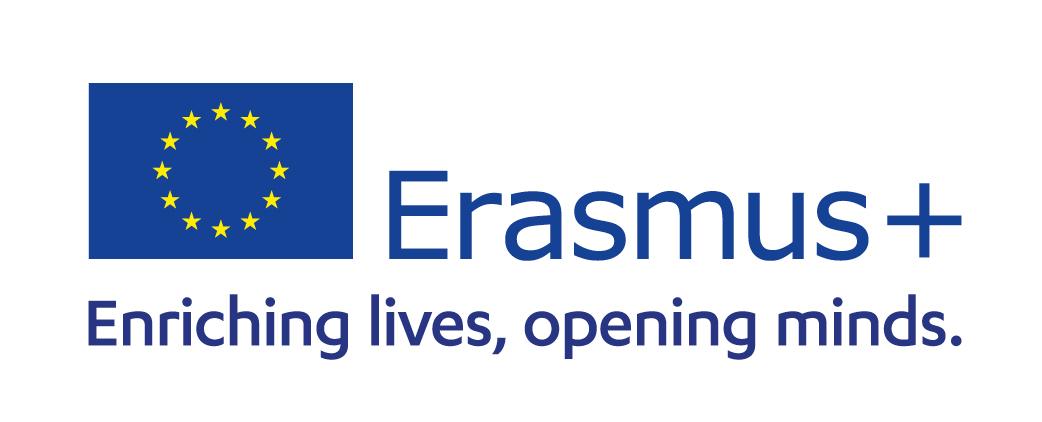
 |
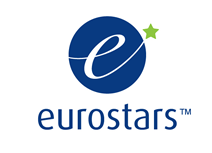
AURA-Care: AUgmented and virtual ReAlity enabled communication, training and data streaming in healthcare (Role: Principal Investigator/Partner)
The AURA project aims to optimize care-provision in modern healthcare by developing an innovation- and User Centered Design-driven product to revolutionize communication among professionals and their older patients and hence, enhance care provision and professional practices. The system will consist of three research-backed up modules: a) An AR communication assistant: allowing augmentation of the physical world with neuropsychologist-endorsed and superimposed digital annotations to facilitate understandability during video-calls. b) A 360° simulation module: Offering an immersive, risk-free and cost-effective experiential learning/assessment tool. c) An online personalized data streaming service: supporting data mining and decision-making through data visualizations and infographics.
Funding: €128,800.00, EU Eureka - Eurostars Call, Starts May 2022
 |

UPDEIT: UPDating university curricula on Early InTervention (Role: Principal Investigator/Partner)
The goal of this project is on early intervention for children with developmental delay, and that is to give these children an equal opportunity in life. Addressing digital transformation through development of digital readiness, resilience and capacity is the most relevant horizontal priority for the project. It supports evidence-based practices and it fosters innovative and creative IT solutions in the area of early childhood development and early intervention.
Funding: €38,373.00, EU Erasmus+, Starts May 2022
 |

BLISS: Boosting health LIteracy for School Students (Role: Principal Investigator/Partner)
BLISS aims to respond to the 'health need' and the associated need to have the tools to find, analyse and understand health-related news with an integrated educational and social intervention. These skills are part of 'digital health literacy', as defined by the WHO. The intervention is particularly urgent in the current period, in which the effects of the COVID-19 pandemic are evident and severe, particularly in the population segments of developmental age. The acronym chosen, BLISS, is not accidental: the project wants to offer the beneficiaries a better quality of life and well-being for their future, thanks to the acquisition of fundamental skills for personal growth and active European citizenship. The objective of improving citizens' health has in fact a transnational scope, as clearly stated in the European Commission's eHealth Action Plan 2012-2020.
Funding: €51,288.00, EU Erasmus+, Starts April 2022
 |
ASM4Deaf: Accessible System and Social Media Mobile Application for Deaf Users (Role: Principal Investigator/Partner)
Aligned with the results of research studies and the EU Directive the main objective of the proposed project is to develop a cloud-based system and an innovative mobile application that will support the use of multiple sign languages within mainstream social media and networking platforms (e.g. Whats App, FB Messenger, Google Hangouts, Viber etc.). Furthermore, this objective is well aligned to the programme call that supports the creation and initial development of innovative STARTUPs which aim to develop innovative products and services with global market penetration prospects.
Funding: €18,600.00, RESTART 2016 – 2020, Research and Innovation Foundation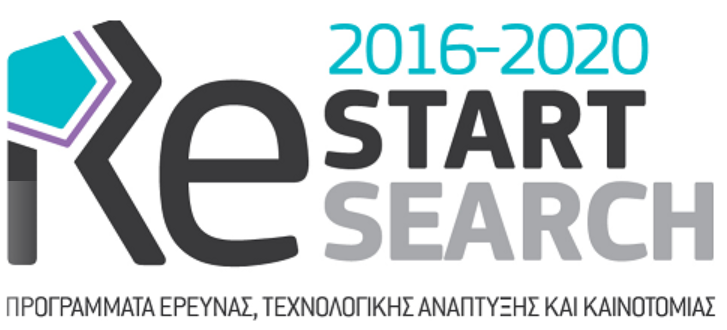
 |
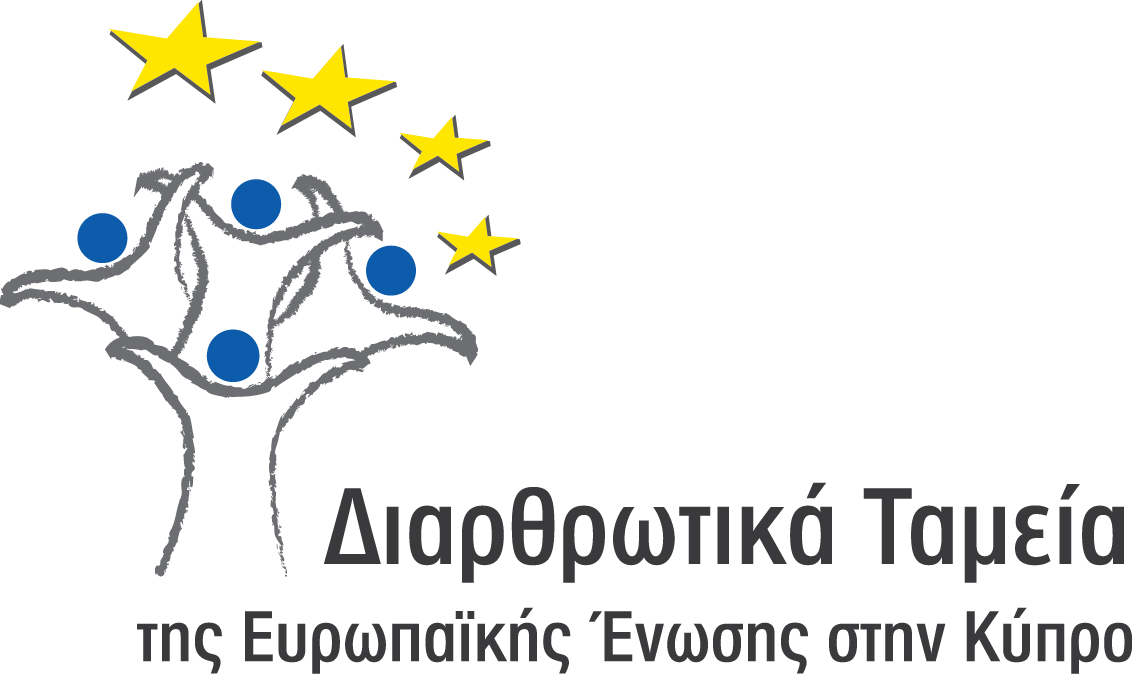 |
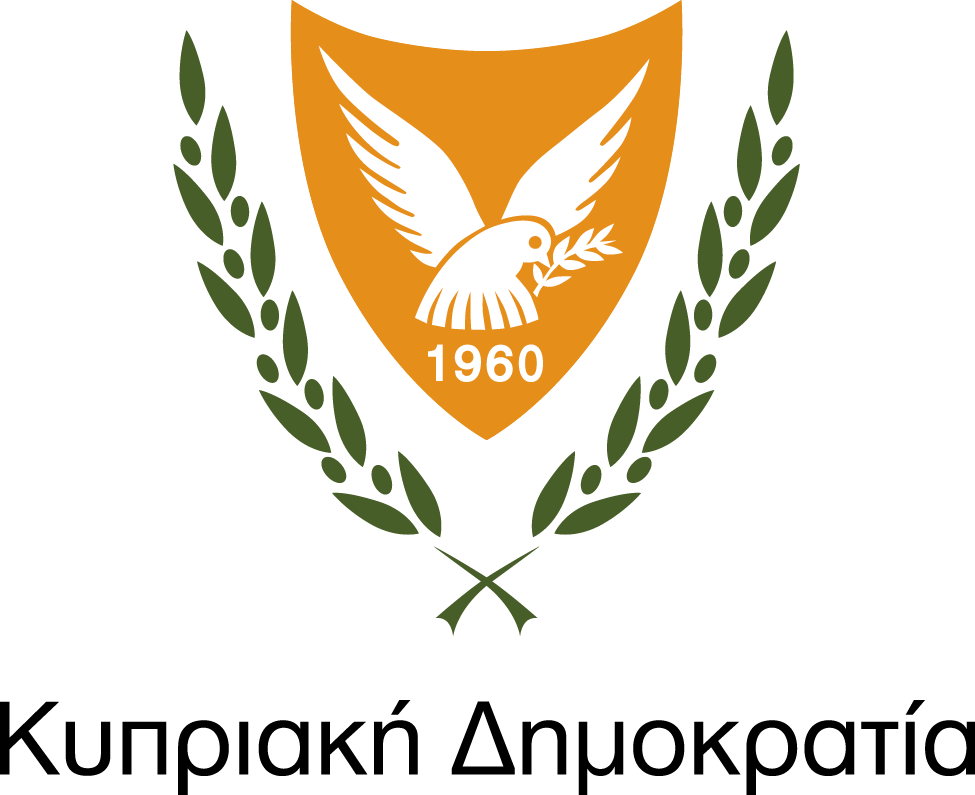 |

OLMEdu: Open Lab for the up-skilling of higher educational staff in on-line MAnagement EDucation (Role: Project Coordinator)
OLMedu project aims at the creation of an open lab for the up-skilling of HES staff in online management education. The activities foreseen aim to produce the following outputs: a) The development of training content for the up-skilling of HES in the use of ICT technologies and online training in ME b) The development of learning material for the use of online training and ICT technologies in teaching management c) The development of a Toolbox for developing online simulations in ME d) The development of an online learning repository for HEI educational staff.
Funding: €55,000.00, EU Erasmus+
 |
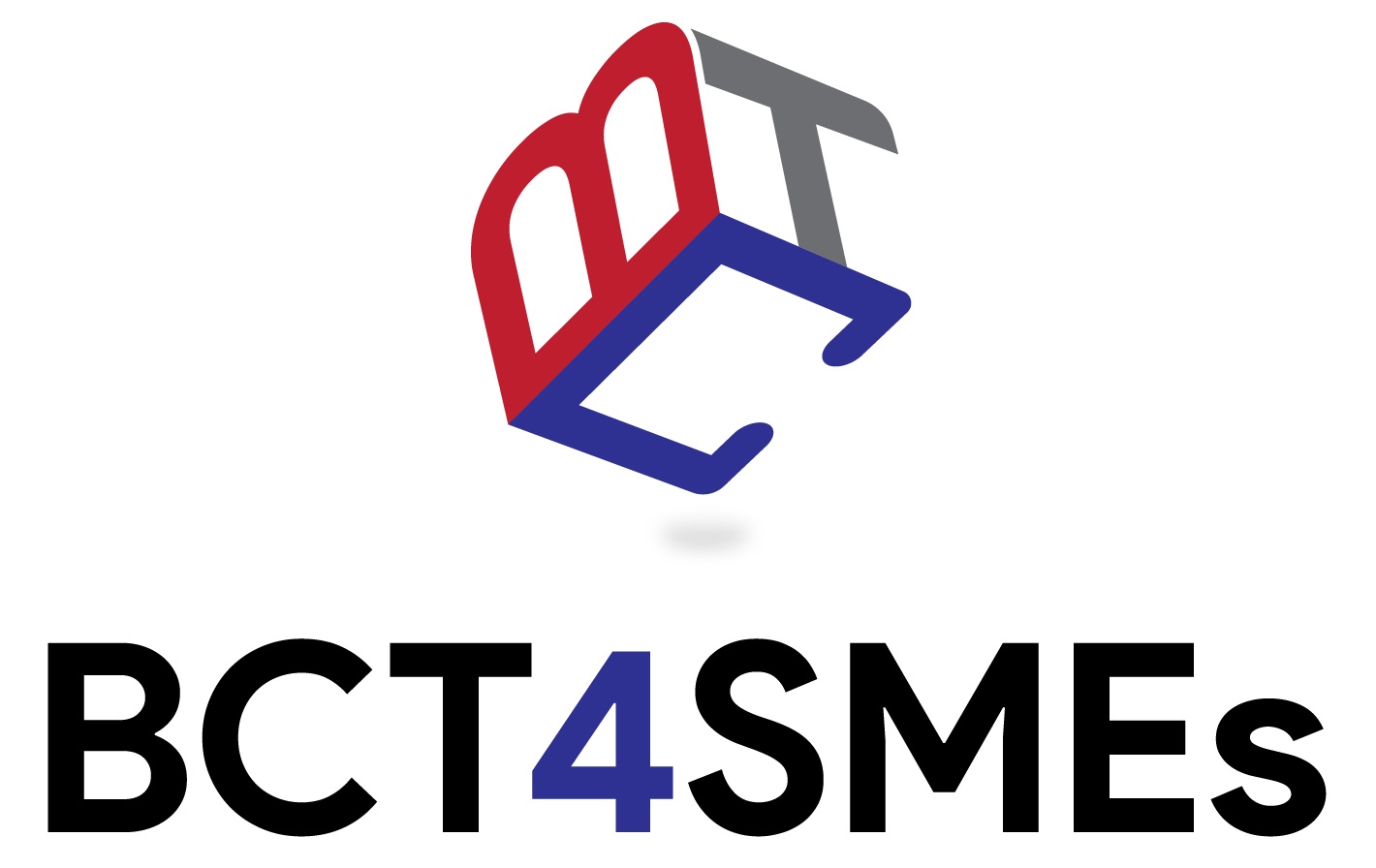
BCT4SMEs: High level knowledge awareness of BlockChain Technology applications in SMEs (Role: Principal Investigator/Partner)
BCT4SMEs aims at supporting managers utilizing and integrating blockchain technology, and benefit from the advantages that it comes with. In order to achieve its goal, the project will create a personalized environment which will deliver strategies and actions that need to be adopted by learners in order to learn how to effectively use the blockchain technology.
Funding: €36,000.00, EU Erasmus+
 |
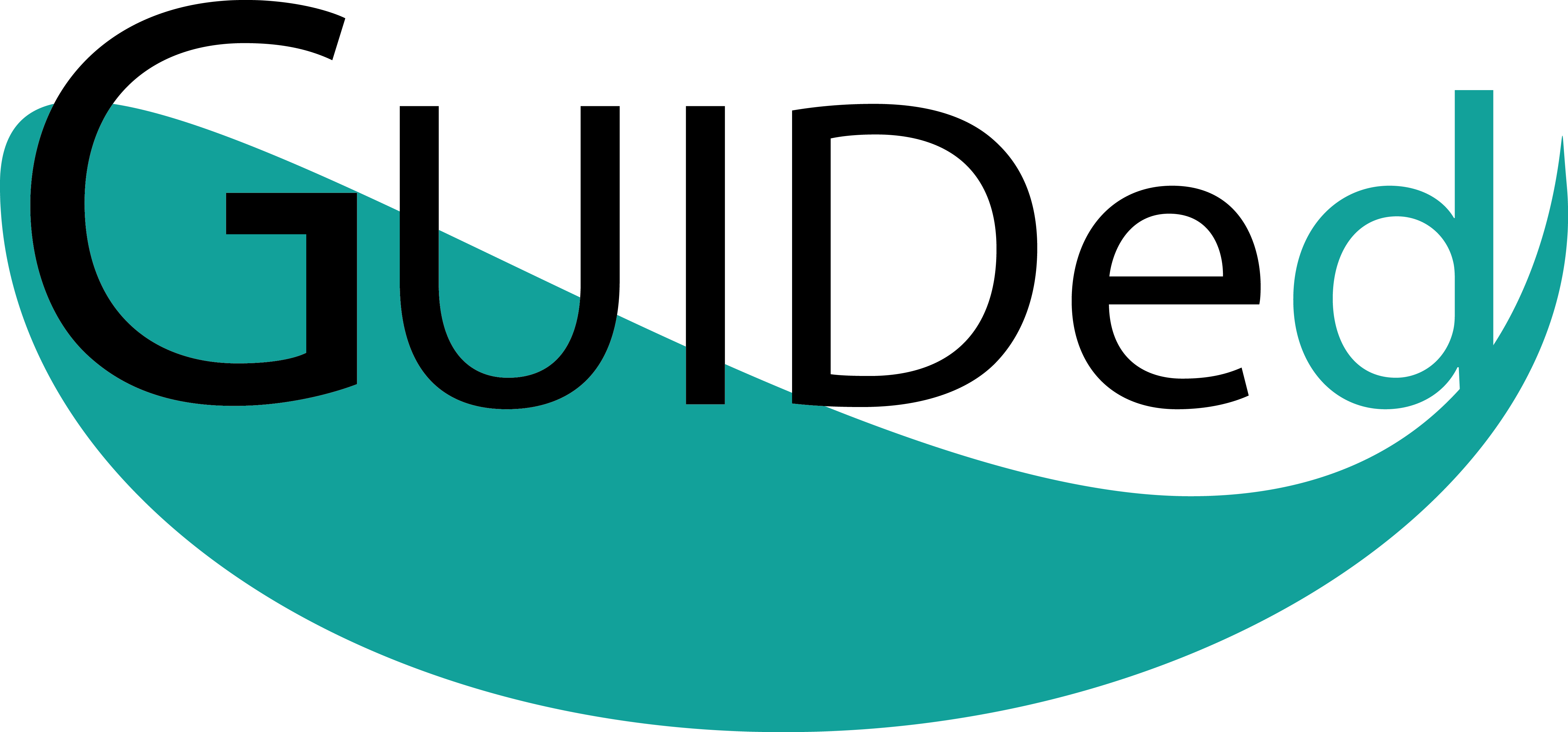
GUIDed: GUIDed Assisted-Living and Social Interaction Platform (Role: Principal Investigator/Partner)
The project will integrate existing open-source technologies, platforms and tools, as well as assemble a smart AR-enabled platform based on existing fully customizable hardware boards to offer a set of simple, plug-and-play, assisted-living (AL) services. Real users including primary (older adults), secondary (family members, healthcare professionals and network) and tertiary (i.e., care organizations) users will be involved throughout the project progress and assist in system design, integration, testing and evaluation. The Augmented Reality Healthcare Expert will be designed in such a manner that will be intuitive to use while at the same time it will tackle cognitive decline and forgetfulness. Prior to using the Augmented Reality Training Expert, older adults will have a one-to-one training session with the respective end-user organization and will be subsequently supported when in need with regular check-ups.
Funding: €35,000.00, EU AAL Programme and Research and Innovation Foundation
 |
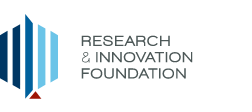 |
 |

DineTours (Role: Principal Investigator/Partner)
The project will get feedback from early adopters to fine-tune and deliver the extensible Dinetours web platform, which is marketable (TRL9) and where each module is provided as a Web Service. It will offer virtual reality tours and booking services for supporting reservations in the hospitality sector, e.g., restaurants, venues. A market research will be performed for gathering, recording and analysing data about customers, clients, competitors and the market. This will be part of the overall feasibility study that aims to reveal if the platform meets certain financial and social goals in the market, to define the right business model and business plan. Finally, focus will be also given to the dissemination and exploitation of the platform based on the activities and events defined in the project.
Funding: €30,000.00, RESTART 2016 – 2020, Research and Innovation Foundation
 |
 |
 |

SportsTraveler76 (Role: Principal Investigator/Partner)
This project aims to provide innovative services that enable travelers to book and actively participate in “soft sport tourism” activities, which is not currently addressed by other platforms and websites. It aims to be the first worldwide web platform offering adaptive and personalized recommendation services for online booking of full packages by customers based on their preferences and sporting interests. This will come as an extension to the existing web platform offered by SportsTraveler76 Ltd. , which currently provides (1) a software service for “soft sport tourism” organizers to create a new event requesting specific custom data from the customer that wishes to travel and participate in this event, (2) a software service that allows booking different types of tickets for the events and (3) a software service for paying for those tickets. In specific, this project aims to extend the current web platform by developing new services and integrating and managing dynamically third-party services (e.g., existing Web APIs for flights booking, hotels booking) provided by partners, thus enabling the customer to create and book a full “soft sport tourism” package.
Funding: €24,000.00, RESTART 2016 – 2020, Research and Innovation Foundation
 |
 |
 |
Research & Innovation Projects funding as ICT Lead Researcher and co-director at the MDL lab:
FIT: Fairness in Teaching (Role: ICT Leader/Partner)
The FIT project will conduct in the production of 4 main outcomes: - The competency framework of fairness in teaching for secondary and primary Schools, and its associated assessment tools so that teachers can find out how their teaching is fair. - A FIT digital assistant platform with fair teaching materials that teachers can experiment with into their classrooms, - The training contents which will contribute in stepping up teachers’ fair practices. - The FIT community of practice that will allow to develop the FIT project results in a collaborative approach, but also disseminate them. Finally, the FIT project aims to trigger a real process of change regarding fairness in teaching among primary and secondary level education so that more diverse range of pupils will equally access to STEM opportunities.
Funding: €58,653.00, EU Erasmus+
 |
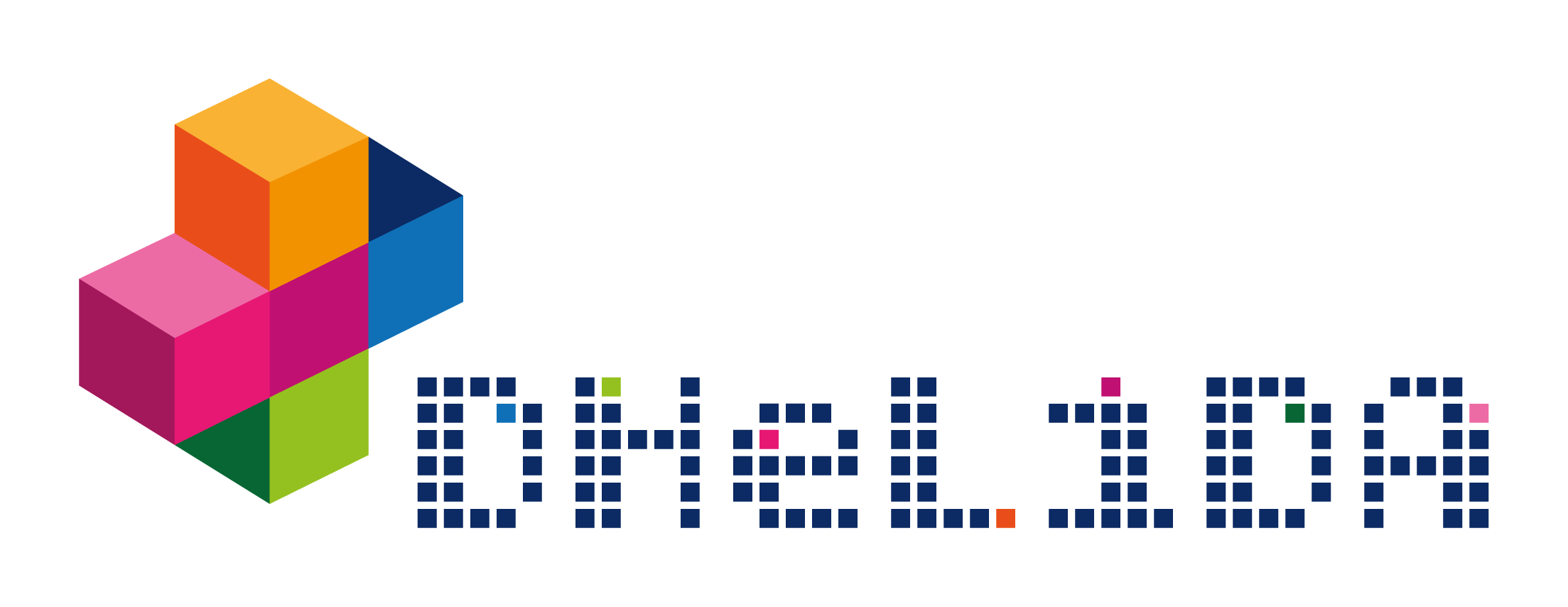
DHeLiDA: Digital Health Literacy for Disadvantaged Adults (Role: ICT Leader/Partner)
Digital health literacy (or digital health literacy) is the ability to search, find, understand and evaluate health information from computerised sources and to apply the knowledge gained to address or solve a health problem. The project will enable citizens to better manage their health and illness, improve prevention, enable more accurate diagnosis and treatment, and facilitate communication with health professionals. It will also help ensure more equitable access to health care while facilitating access to health information for adults with fewer opportunities and less access to reliable sources on a topic as important as health, especially in this time of global Health Emergency.
Funding: €59,000.00, EU Erasmus+
 |
Industry Projects and Tender funding as ICT Technology Expert and co-director at the MDL lab:

Νational physical fitness assessment program for the secondary school student population CyFit - formerly Aristotelis (Role: ICT Technology Expert)
The objective of the "CyFit" project is to evaluate the physical condition (PC) of children of secondary education, similarly to different European countries, with weighted and repeated sets of physical fitness tests (FT), which aim at promoting physical activity, health and well-being in schools as well as at the same time enable the creation of an extensive database for long-term monitoring of the PC of children and adolescents. The good practices of EU countries integrate innovation and technology through the analysis, design and development of a web platform that enables the use of a tool for long-term monitoring and comparison of PC with international data as well as a feedback system for recommendations and advice, on which the methodological approach of this proposal is based. The web platform drives the creation of a large and valid database regarding the physical condition of the entire student population in secondary education, which will allow the monitoring of the health of the population in the long run, the comparison of the data of Cyprus with the norms proposed by the World Health Organization as well as and the scientific and research utilization of data. Reliability, validity and comparability of measurements is a key goal of the program.
ICT Funding: €34,000.00, Cyprus Ministry of Education, Culture, Youth and Sports, March 2022 – April 2025
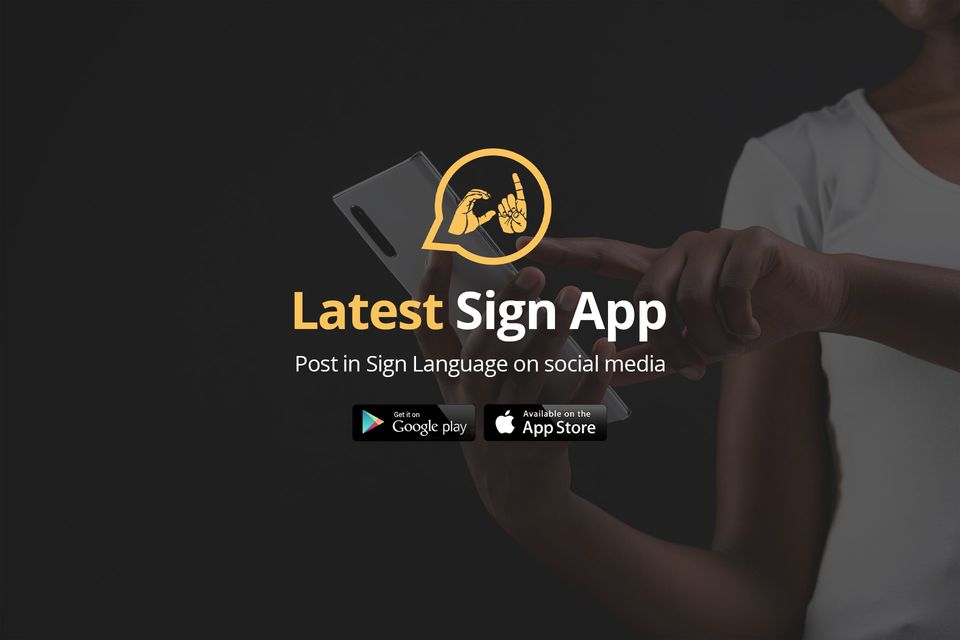
SLKApps: Sign Language Keyboard Android and iOS Applications (Role: ICT Technology Expert)
A sign language keyboard application for iOS and Android will be developed for the following sign language alphabets: American, French, Greek, South African, UK, Australian, Brazilian, Chinese, Cypriot, German, Indian, and Russian. The company will provide the icons/letters for the different languages in the required size, positions and formats (i.e., left, right, colour) as requested by the developers, so as to be added to the keyboard. The application will be installed as a keyboard, it will include the above sign language alphabets and will be able to be used in social media applications so as to exchange message using sign language alphabets.
ICT Funding: €10,560.00, Industry: A.G. Connect Deaf Ltd., December 2019 – March 2020. More Information
More Information
CloudScanner: An Automated Cloud Deployment and Provisioning Recommendation System (Role: ICT Technology Expert)
This project is a cloud provider agnostic approach that allows end-users to specify their business requirements in an abstract form and with the help of a cloud applications knowledge database transform them into concrete requirements that are processed and transformed into a cloud deployment solution. The deployment solution plans are generated using Rules-Based Algorithm. The recommendations are generated using the user specifications about their business requirements compared with the experts’ decisions. For more advance Users such as developers and ITs, the "Built your own configuration" was developed, were the deployment plans can be built manually. Finally, the generator algorithm was developed to generate and recommend a deployment solution plan based on the cloud provider price most importantly and also based on the hardware specifications in order to match the software requirements. (student hired & part of MSc thesis).
ICT Funding: €8,000.00, Industry: IBSCY Ltd., October 2018 – June 2019. More Information
More Information
Projects worked as Lead Researcher or Researcher at SEIT lab and the MDL lab:

HIT (Hate Interrupter Teams) (Role: Researcher/Partner)
The HIT project is a European project that provides young people with knowledge and tools to address hate speech towards migrants and minorities. With these tools, they can identify, and then report, these abusive speeches. To achieve this goal, the project offers a new model of empowerment of young Europeans through the creation of "Hate interruptor Teams" (HITs), aimed mainly at people from 14 to 19 years old. These teams are supported by young mentors, and young workers. In addition, they will have the possibility of counteract hate speech and behavior towards migrants (HSBM) in their communities, at school and among their peers. The HIT Training sessions for young people, Seminars on human rights with educators, role models, mentors and group leaders, the web platform that allows creating and managing educational resources and the mobile applications (iOS, Android) will all contribute to a better understanding of the incidence of hate speech against migrants and other groups, among children and young people, while raising awareness about this issue and promoting its prevention.
Funding: €44,000.00, EU DG Justice and Consumers - Rights, Equality and Citizenship Programme (REC) More Information
More Information

SCICHALLENGE HORIZON 2020 (Role: Researcher)
The SCICHALLENGE project focuses on developing novel concepts to actively integrate young people in science education using a contest-based approach to self-produced digital education materials from young people for young people. The initiative will broadcast and distribute content over various social media channels and aggregated on a modern SCICHALLENGE Web Platform (www.scichallenge.eu) to generate wide reaching awareness and promotion.
Funding: €192k, EU H2020 Programme More Information
More Information
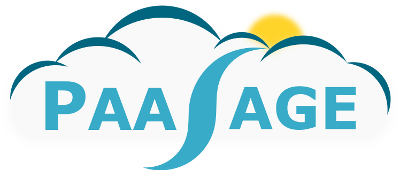
PaaSage EU FP7 (Role: Lead Researcher)
PaaSage will deliver a development and deployment platform, with an accompanying methodology, with which developers of enterprise systems can access services of cloud platforms in a technology neutral approach that abstracts the technical details while guiding them to configure their applications for best performance. Total PaaSage investment reaches 7,4m over 4 years!
Funding: €395k, EU FP7 Programme More Information
More Information

Prosperity4All EU FP7 (Role: Lead Researcher)
Over 2 billion people worldwide have different types, degrees, or combinations of disability, literacy, digital literacy or aging related barriers that impede or prevent use of ICT. Prosperity4all, focuses on developing the infrastructure to allow a new ecosystem to grow; one that is based on self-rewarding collaboration, that can reduce redundant development, lower costs, increase market reach and penetration internationally, and create the robust cross-platform spectrum of mainstream and assistive technology based access solutions required.
Funding: €133k, EU FP7 Programme More Information
More Information
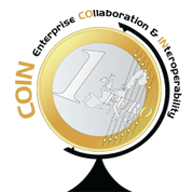
COIN EU FP7 (Role: Lead Researcher)
By 2020 enterprise collaboration and interoperability services will become an invisible, pervasive and self-adaptive knowledge and business utility at disposal of the European networked enterprises from any industrial sector and domain in order to rapidly set-up, efficiently manage and effectively operate different forms of business collaborations, from the most traditional supply chains to the most advanced and dynamic business ecosystems. The mission of the Coin IP is to study, design, develop and prototype an open, self-adaptive, generic ICT integrated solution to support the above 2020 vision, starting from notable existing research results in the field of Enterprise Interoperability and Enterprise Collaboration.
Funding: €239k, EU FP7 Programme More Information
More Information

CVN EU AAL (Role: Lead Researcher)
The European AAL ConnectedVitality project aims to develop 'the second best connection' a video communication network, coined 'The ConnectedVitality Network', enabling immobile senior citizens to organize their social network and choose the activity and select levels of social interaction according to their individual needs, abilities and chosen lifestyle. The project was selected as 1 of the 9 success stories for AAL projects across all calls. The 3-year project funded by AAL (AMBIENT ASSISTED LIVING) turned out to be a highly inspirational process which led to the successful development of YoooM and YooM-tablet devices and platforms - See more at: AAL Success Stories.
Funding: €240k, EU AAL Programme More Information
More Information

VALS EU Erasmus LLP (Role: Lead Researcher)
VALS will establish sustainable methods and processes to build knowledge partnerships between Higher Education (HE) and companies to collaborate on resolving authentic business problems through open innovation mediated by the use of Open Source Software (OSS). OSS provides the means whereby HE institutions, students, businesses and foundations can all collaborate to resolve authentic business problems. Not only does OSS provide the necessary shared infrastructure and collaborative practice, the foundations which manage the software are also hubs which channel the operational challenges of their users through to the people who can solve them. This has great potential for enabling students and supervisors to collaborate in resolving the problems of businesses, but is constrained by the lack of support for managing and promoting collaboration across the two sectors.
Funding: €53k, EU Erasmus+ Programme More Information
More Information

MUSIC EU FP6-IST (Role: Researcher)
MUSIC is a focused initiative that develops a comprehensive open-source software development framework that facilitates the development of self-adapting, reconfigurable software that seamlessly adapts to the highly dynamic user and execution context, and maintains a high level usefulness across context changes. Context-aware applications are capable of exploiting knowledge of external operating conditions, and they are self-adaptive if they adapt at runtime to varying contexts, like changing user needs and operating environments. MUSIC includes major industrial players in the mobile market, several SMEs (one IST prize winner) specialising in mobile services, organisations with expertise in the domains of the trial services, Universities, and research institutions. The duration of the project is 42 months, and the budget 14.5 M.
Funding: €610k, EU FP6 Programme More Information
More Information

H5CM UCY Startup Funding (Role: Lead Researcher)
A context-aware middleware was built that includes context-aware sensor and reasoner modules for cross-platform development of context-aware applications. Any technology thus should adapt to the end-users"™ perspective and tailor applications to the context (i.e., location, situation, social data) using any smart device and platform. Realization of this smart vision demands mechanisms for ubiquitous and reliable acquisition, analysis and sharing of information to improve the experience of end-users, by anticipating user requirements while the end-user remains undisturbed by the underlying technology. On a complementary dimension application developers should be supported by a transparent infrastructure and context modules that support and expedite cross-platform context-aware application development.
Funding: €TBC, University of Cyprus - Internal Programme More Information
More Information
ACSC131 - Internet Technologies - new BSc course structure
The aim of the course is to introduce students to the dominant technologies prevailing today in the Internet including application layer protocols, web content development and client-side scripting. The course will also introduce students to the impact of JavaScript and the development of cutting-edge technologies, powerful libraries and front-end web development frameworks: jQuery, AJAX, Bootstrap and HTML5. Upon successful completion of the course students will be able to:
- Describe and explain how various protocols operate and discuss their key characteristics with respect to their actual usage in the Internet.
- Learn to use Hyper Text Markup Language (HTML) for web content definition of static websites and describe and explain the evolution of HTML.
- Discuss the importance of web design, use Cascading Style Sheets (CSS) for web pages design and discern between web content and web design activities.
- Design and develop high-quality static websites using together HTML and CSS.
- Evaluate the differences between markup languages and scripting languages.
- Argue on the impact of client-side web scripting paradigms and learn how they can be used to construct elementary web applications.
- Develop client-side web programs by employing web scripting technologies such as JavaScript for user interaction and processing user input from forms.
- Discuss the impact of client-side technologies in the development of the web and learn how to use widely-used and well-known JavaScript and CSS libraries.
- Discuss and evaluate the impact of HTML5 on web development and exhibit the ability to utilize HTML5 constructs in web pages, especially for graphics.
ACSC288 - Data Structures
The aim of this module is to provide students with an in-depth understanding of the importance of data structures in the development of programs as well as strong familiarity with the development and usage of such concepts. The module will focus on the acquisition of practical programming skills using low-level concepts as well as conceptual understanding of how such choices affect program performance. An introduction to algorithmic complexity is also provided. Upon successful completion of the course students will be able to:
- Recognize the limitations of static data structures; compare and discuss the differences in memory allocation of static and dynamic data and construct programs that can handle, create, manipulate, and destroy dynamic data.
- Demonstrate the ability to implement linear abstract data types such as lists (single/double linked, circular), stacks and queues programmatically. Identify how such structures can be applied in Computer Science, distinguish the use of each and effectively employ them.
- Explain how tree data structures can be implemented, discriminate between the different tree types (generic, binary) and identify where they can be used. Evaluate tree traversal methods and be able of designing and constructing core tree operations using recursive functions. Examine implementation approaches for special tree structures such as priority queues.
- Define and describe data structure classes available in the standard template library, employ them for solving relevant problems and develop the necessary conceptual understanding that would help them adapt to similar programmatic environments (e.g. Collections in Java).
- Recognize the importance of algorithmic complexity, as well as understand complexity of basic algorithms and the concept of big O notation. Select, experiment, and programmatically develop appropriate data structures and algorithms for searching and sorting problems and judge the advantages. The above will be applied in practice using the C++ programming language.
ACSC382 - Object Oriented Programming
The aim of the course is to provide a general introduction to object-oriented programming concepts. It introduces important concepts such as object-orientation, classes and objects, modularity and reusable components, encapsulation, inheritance, polymorphism, I/O and Serialization, User interface programming, event and exception handling. Upon successful completion of the course students will be able to:
- To describe and explain the principles of object orientation – abstraction, data encapsulation and information hiding, message passing, inheritance and polymorphism and their implementation in Java programming language.
- To compare, clearly explain and apply the transition from data types in procedural programming paradigm to abstract data types, from simple variables to classes and instances, from library of functions to packages of classes.
- Building ability of students to write programs applying the principles of object orientation in different object-oriented programming languages.
- To show practical competence and skills of students to write high quality programs in Java using exception handling mechanism, streams and object serialization.
- To show skills for organizing complex programs using built-in classes and packages in Java programming environment to create reusable and extensible code based on object-oriented concepts.
- Understand and apply object-oriented programming concepts to design and implement graphical user interface (GUI) based software applications in Java.
ACSC383 - Software Engineering
The aim of the course is to provide a general introduction to software engineering. It introduces important concepts such as software processes and agile methods, and describes essential software development activities, from initial software specification through to system evolution. Upon successful completion of the course, students will be able to:
- To explain the systematic approach to development of software as product emphasizing the basic analysis and design phases of the software development lifecycle and to compare different development lifecycle models.
- To show knowledge and skills for specifying the system requirements in a given problem domain as starting point of development process applying Use Case modelling.
- To show ability to apply UML as de-facto standard for CASE working with Use Case, Class and Object, State, Collaboration and Sequence diagrams for analysis and design of object-oriented software systems.
- To describe and explain the nature of design as continuation of analysis and to be able to apply specific methods and techniques to system (architectural) and detailed (software) design.
- To introduce the concept of component-based software engineering as extension of objects, use of analysis and design patterns and development of complex systems based on frameworks.
ACSC389 - Software Engineering Project I
The aim of the module is to familiarise students with practices in the development of modern Information Systems by experiencing and executing the software engineering lifecycle process. This process will be applied as part real-world projects assigned by companies or as internal projects. During the first semester (ACSC389) the software system specification (i.e., requirements and design) will be defined and submitted. The students will then be able to execute the subsequent software development activities (ACSC390), which refer to implementation and validation, as part of summer work placement at a company or as an internal project. Upon successful completion of the course, students will be able to:
- To apply in practice their software engineering knowledge obtained in the ACSC383 course, which refers to the realisation of the first two phases of the software development lifecycle: requirements engineering and system specification.
- Learn new skills to build a software system according to client requirements and deadlines. In addition the students develop research skills to identify and use appropriate software development tools and other resources.
- Build ability of students to extract requirements from the client, analyze and organize the information, formulate ideas and to communicate all the information and ideas effectively and fluently, in both written and oral forms using appropriate communication technologies.
- Engage with agile software development of real systems based mainly on team work and prototyping. Through assigning respective team positions the students will understand the process of project management.
- Formulate user requirements and convert them into software design and specifications applying modern methods and techniques as well as respective CASE tools.
- Students will be able to plan their next steps according to the software development life cycle, including implementation and testing.
ACSC390 - Software Engineering Project II
The aim of the module is to familiarise students with practices in the development of modern Information Systems by experiencing and executing the software engineering lifecycle process. This process will be applied as part real-world projects assigned by companies or as internal projects. During the first semester (ACSC389) the software system specification (i.e., requirements and design) will be defined and submitted. The students will then be able to execute the subsequent software development activities (ACSC390), which refer to implementation and validation, as part of summer work placement at a company or as an internal project. Upon successful completion of the course, students will be able to:
- To apply in practice their software engineering knowledge obtained in the ACSC383 course, which refers to the realisation of the first two phases of the software development lifecycle: requirements engineering and system specification.
- Learn new skills to build a software system according to client requirements and deadlines. In addition the students develop research skills to identify and use appropriate software development tools and other resources.
- Build ability of students to extract requirements from the client, analyze and organize the information, formulate ideas and to communicate all the information and ideas effectively and fluently, in both written and oral forms using appropriate communication technologies.
- Engage with agile software development of real systems based mainly on team work and prototyping. Through assigning respective team positions the students will understand the process of project management.
- Formulate user requirements and convert them into software design and specifications applying modern methods and techniques as well as respective CASE tools.
- Students will be able to plan their next steps according to the software development life cycle, including implementation and testing.
ACSC476 - Internet Technologies
The aim of the course is to introduce leading technologies prevailing today in the Internet. The course will start with a brief revision on web content definition and programming on the client side using the full set of technologies: HTML, CSS, JavaScript and Libraries (e.g., jQuery). Based on this review the comparison of client-side with server-side programming will be presented, which will follow up with in-depth introduction of Hypertext Preprocessor (PHP). PHP is a server-side scripting language designed for highly-interactive and dynamic web development, but also used as a general-purpose programming language. PHP-based data management (e.g., sessions) and PHP to MySQL database connectivity and management will be also presented. The impact of the Model View Controller (MVC) pattern on server-side web programming and PHP will be also presented. Finally, the students will learn about the impact of XML in the shift towards Web 2.0 and the technologies (AJAX, JSON) that are available today, they are widely used and largely replace it. Upon successful completion of the course, students will be able to:
- Describe and explain how client-side technologies are combined and used to define web pages content and design, as well as program interactive features.
- Design and construct client-side web programs using the full set of client-side technologies: HTML, CSS, JavaScript and Libraries (e.g., jQuery).
- Evaluate the differences between client-side and server-side programming, be familiar with the dominant technologies that support each type and argue on the efficiency/effectiveness of each on various scenarios.
- Introduce and describe Hypertext Preprocessor (PHP), one of the most popular server-side programming languages for implementing dynamic web pages.
- Develop dynamic server-side web programs using the PHP technology, including web forms, session data management and MySQL database management.
- Argue on the impact of the Model View Controller (MVC) pattern on server-side web programming and apply it to construct powerful web applications.
- Discuss the impact of XML, JSON and AJAX technologies in the web evolution, and evaluate and critique the emergence of the Semantic Web and Web APIs.
ACSC404 - Web-Enabled Applications
The aim of this module is to familiarise students to the complexity and dynamics of developing web-enabled applications as well as with the acquisition of practical skills in the construction of such software. Upon successful completion of the course, students will be able to:
- Identify the elements of web enabled applications and types of e-commerce systems and recognize their impact.
- Demonstrate how multi-tier architectures can be employed for developing web enabled applications. Design multi-tiered web applications and develop them programmatically using technologies such as JSP, JavaBeans and Servlets.
- Experiment with concepts such as session tracking, object persistence/lifetime, collaboration with client-side objects (AJAX) and backend connectivity and evaluate and select appropriate solutions according for problems faced.
- Discuss the challenges of data inter-exchange over the Internet and understand the role of web services in web-based applications and construct and incorporate such services.
- Describe how web applications can be developed under the agile paradigm and discuss advantages and disadvantages.
WSS502 - Web Engineering
The aim of this course is to provide students with critical understanding on how to productively engineer Web Applications. The course addresses the concepts, methods, technologies and tools for developing Web applications. Topics covered include evolution of the Internet and the Web, Web technologies and the basic models and architectures in a Web environment. It kicks-off with a theoretical examination of web engineering and its phases. It proceeds to introduce client-side technologies and server-side technologies that support the development of static web sites, dynamic web applications and rich internet applications. It concludes with an overview of cutting-edge concepts, technologies and frameworks that support full stack web development. The course has a theoretical underpinning, but focuses mostly on practical examples on how to engineer Web applications using the introduced implementation methods, techniques and tools. Upon successful completion of the course, students will be able to:
- Understand the concepts, principles and methods of Web engineering.
- Gain theoretical knowledge and analytical skills to develop Web applications.
- Apply the described concepts, principles and methods to development of Web applications.
- Familiarize with different Web technologies and programming languages in theory and through practical exercises.
- Understand the differences and benefits of Full Stack Web Development and apply it in practice for the implementation of Web Applications.
WSS523 - Software Reuse
The aim of this course is to provide students with critical understanding of the technology, issues and challenges of software reuse at various levels. Specific focus in the course is dedicated to software reuse in web-based systems accessible via mobile devices. The course will enable students to practice software reuse at various levels, with different programming languages and on different platforms. In specific, the use of Java and HTML5 technologies will provide the capability to experience and practice software reuse on both desktop and mobile platforms, as well as at different levels such as object-oriented programming, component-based software development, middleware-based development, WS*-stack services, REST services and model-driven engineering. Finally, management of code repositories is introduced at the last week. In overall, the objective of the course is to enhance critical awareness, promote practical thinking and reasoning to solve practical problems through the reuse of software systems. Upon successful completion of the course, students will be able to:
- Understand the concepts, principles and methods of software reuse.
- Familiarise and understand the different levels of software reuse.
- Make proper use of ready-made software components in practice.
- Gain theoretical knowledge and analytical skills to develop applications by employing reuse methods at code, component, design and models levels.
- Learn how to reuse Java and Web components.
- Distribute effectively the results of their work to other developers using software repositories.
WSS551 - Interactive Design for Web Systems
Human Computer Interaction (HCI) is the area that focuses on the design and use of computer technologies with emphasis on User Interface (UI) design as well as the utilization of novel design ways and tools that human beings use and interact with computers. Interactive Design (ID) is the area in HCI that particularly deals with the interaction between human and computers and tries to make systems usable. It focuses more on User Experience Research and User Experience Design. In particular, ID tries to understand what is going on in the interaction between users and systems as well as what the user wants and what the system does. For example, it examines the ergonomics (i.e., the digital/physical characteristics of the interaction) and how these influence its effectiveness, it studies how the dialog between user and system is influenced by the style of the interface as well as the social and organizational context that the interaction takes place, which affects both the user and the system and many more. Moreover, with the advancements in Web Systems and Ubiquitous Computing devices the need for designing human computer interfaces that can interpret and support user’s intentions by utilizing modern and advance web technologies is greater than ever. Thus, this specialization course also includes a practical orientation in client-side application design and development, as well as server-side service development using advanced internet technologies. It will focus on learning practical skills, techniques and best practices used for the modern and rapid development of full-stack, open-source JavaScript-based applications. Finally, it overviews the main challenges and implications of the Semantic Web, Internet 2.0 and Cloud computing for advanced web application development. The purpose of this course is to provide students with the knowledge of the essential tools and techniques in order to extend critical awareness of the issues and challenges associated with human computer interaction and interactive system design, enhance their understanding on interactive design on web and mobile systems, to enable students to learn advanced interaction design techniques, such as adaptive and responsive design, and to become acquainted with cutting-edge web technologies and apply them in practice for full stack web application development. By the end of the course, students should be able to:
- Describe the emerging topics on Human Computer Interaction (HCI) design in making more comprehensive and user-friendly computer-based systems.
- Identify and clearly describe the main challenges and issues on HCI and Interactive Design.
- Understand the theoretical dimension of human factors in the acceptance of computer interfaces and identify the impact of usable interfaces in the performance of Mobile and Web systems.
- Understand modern concepts, principles and methods for implementing advanced Internet application tools.
- Identify techniques and practices across various platforms and tools for designing interactive interfaces, standardization, analysis and evaluation.
- Critically evaluate various web technologies and web systems and identify their strengths and weaknesses.
- Demonstrate creative skills in designing competing user interfaces in web and mobile systems.
- Familiarize with advanced internet technologies and implement them in practice for full-stack web development.
- ACSC 131 -- Internet Technologies - BSc course - new BSc course structure
- ACSC 288 -- Data Structures - BSc course
- ACSC 383 -- Software Engineering - BSc course
- ACSC 389 -- Software Engineering Project (I) - BSc course
- ACSC 382 -- Object Oriented Programming - BSc course
- ACSC 390 -- Software Engineering Project (II) - BSc course
- ACSC 476 -- Internet Technologies - BSc course
- ACSC 404 -- Web Enabled Applications - BSc course
- WSS 502 -- Web Engineering - MSc course
- WSS 551 -- Interactive Design for Web Systems - MSc course
- ACSC 105 -- Business Information Systems - BSc course
- ACSC 383 -- Software Engineering - BSc course
- ACSC 389 -- Software Engineering Project (I) - BSc course
- ACSC 382 -- Object Oriented Programming - BSc course
- ACSC 390 -- Software Engineering Project (II) - BSc course
- ACSC 476 -- Internet Technologies - BSc course
- ACSC 404 -- Web Enabled Applications - BSc course
- ACSC 502 -- Web Engineering - MSc course
- ACSC 504 -- Advanced Web Engineering - MSc course
- ACSC 476 -- Internet Technologies - BSc course
- ACSC 384 -- Advanced Database Systems - BSc course
- ACSC 506 -- Web Engineering I - MSc course
- ACSC 529 -- Software Reuse - MSc course
- EPL 463 -- Software Reuse - MSc course
- PES 642 -- Service Oriented Architectures - MSc course
- EPL 463 -- Software Reuse - MSc course
- EPL 603 - Advanced Software Engineering - MSc course
- PES 642 -- Service Oriented Architectures - MSc course
- EPL 463 -- Software Reuse - MSc course
- EPL 603 - Advanced Software Engineering (Guest Lecture) - MSc course
- EPL 035 -- Data Structures and Algorithms - BSc course
- EPL 034 -- Introduction to Programming for Engineers - BSc course
- EPL 032.3 -- Introduction to Programming and Problem Solving - BSc course
- EPL 003 -- Computer Science and Information Systems - BSc course
- Java Software Laboratory -- Masters postgraduate course
- Introduction to Programming -- 1st year undergraduate course
- Computer Security -- 2nd year undergraduate course
- Network Security -- 3rd year undergraduate course
- Java Software Laboratory -- Masters postgraduate course
- Java Software Laboratory -- Masters postgraduate course
- Professional Development Studies, 2nd year undergraduate course
MSc Thesis Supervision
- Dimitris Dimitriou, MSc Thesis – Web and Smart Systems, “A Web-based Crowdfunding Investment Platform”, 2020-2021. [2].
- Gioulianna Kalaitzidou, MSc Thesis – Web and Smart Systems, “A Web-based Health Platform for Speech and Language Pathologists”, 2019-2020 [2].
- Erma Dymiotou, MSc Thesis – Web and Smart Systems, “A Smart Personnel Management System for Businesses”, 2018-2019 [2].
- Ioannis Giorkas, MSc Thesis – Web and Smart Systems, “Requirements Analysis and Evaluation of Smart City Platforms”, 2018-2019 [2].
- Kyriakos Michael, MSc Thesis – Web and Mobile Systems, “A Non-Immersive Virtual Reality Web Framework for Restaurant Reservation Services (VRWF-RRS)”, 2018-2019 [2].
- Iasonas Iasonos, M.Sc. Thesis: "CloudScanner: An Automated Cloud Deployment Environment", 2016-17, [2].
- Kyriaki Georgiou, M.Sc. Thesis: "A Reconfigurable and Regenerative Middleware for the Internet of Things", 2016-17, [1].
- Kyriakos Evripidou, M.Sc. Thesis: "Real-time Nutrition and Coaching Web Platform: A Fitness Tracker Mobile Application", 2016-17, [1].
- Paraskevi Hadjinikliaou, M.Sc. Thesis: "Real-time Nutrition and Coaching Web Platform: Α Web Services Portal for Fitness Tracking", 2016-17, [1].
- Niklietta Petrou, M.Sc. Thesis: "A Non-Experts Platform for Automated Public Cloud Provisioning and Deployment: The Azure Public Cloud Case Study", 2016-17, [1].
- Orthodoxia Savva, M.Sc. Thesis: "A Non-Experts Platform for Automated Private Cloud Provisioning and Deployment: The OpenStack Private Cloud Case Study", 2016-17, [1].
- Marios Pantelidis, M.Sc. Thesis: "A Dynamic and Adaptive Logistics Platform for the Transport and Distribution of Goods", 2016-17, [1].
- Charoula-Panayiotou, M.Sc. Thesis: "A Web-based Environmental Educational Training and Tour Booking System", 2016-17, [1].
- Marios Komodromos, M.Sc. Thesis: "Interactive and Adaptive Smart City Incident Reporting System", 2015-16, [1]. - Digital Championship 2015-2016 - 3rd Award Student Entrepreneurship - To Marios Komodromos (MSc Student at SEIT) for his project DangerAwareness - Awards Ceremony and Award Ceremony Photo.
- Marita Thoma, M.Sc. Thesis: "Analysis, Extension and Evaluation of an HTML5-based Context Middleware for Mobile Web Applications Development", 2013-14, [1].
BSc Thesis Supervision
- Stylianos Georgiou, BSc. Thesis: "An Electronic Freight Exchange Optimization Platform", 2020-2021 [2].
- Anastasios Seiranidis, BSc. Thesis: "A Web Platform for Hourly-Based Matchmaking of Jobs", 2019-20 [2].
- Chrysanthos Michael, BSc. Thesis: "Smart Incident Reporting System", 2019-20 [2].
- Michalis Hadjidemetriou, BSc. Thesis: " SmartPolis Parking: A Real-Time Car Parking Availability System", 2018-19 [2].
- Ahmad Jamil, BSc. Thesis: " Smart City: A Smart Parking System", 2018-19 [2].
- Dimitris Dimitriou, BSc. Thesis: " SmartPolis Incident Reporting System (SIRS): A Citizen Crowdsourcing System for Incident Reporting in The Smart City", 2018-19 [2].
- Mark Yarovoi, B.Sc. Thesis: "Messaging as a Service (MaaS)", 2017-18, [2].
- Savvas Savva, B.Sc. Thesis: "Adaptive Runtime Middleware", 2017-18, [1].
- Loukia Themistokleous, B.Sc. Thesis: "Study of Really Simple Context Middleware middleware and Implementation of the CampusQuest application in Android", 2013-14, [1].
- Maria Michael, B.Sc. Thesis: "Using Face Detection Methods for Improving HCI In BigBlueButton Videoconferencing And E-Learning System", 2012-13, [1].
- Andreas Konstantinou, B.Sc. Thesis: "Study of the Really Simple Context Middleware for the Intelligent Colloquium Room Implementation", 2012-13, [1].
- Kostantinos Mavris, B.Sc. Thesis: "Study and Implementation of a Context-Aware Social Movie Recommender System for Android", 2012-13, [1].
[2]. Dept. of Computer Science, Frederick University, Cyprus
[1]. Dept. of Computer Science, University of Cyprus, Cyprus
- BEST PAPER AWARD: Christos Mettouris, Alexandros Yeratziotis, Charalampos Theodorou, Evangelia Vanezi, Achilleas Achilleos, George Papadopoulos, Sotiria Moza, Marina Polycarpou, Joanna Starosta-Sztuczka, Karol Pecyna, Terje Grimstad, Strahinja Lazic, "GUIDed: Assisted-Living Smart Platform & Social Communication for Older Adults", 21st International Conference on Innovations for Community Services, I4CS 2021, May 26 - 28, Bamberg, Germany, 2021.
- BEST PAPER AWARD: Lukas Smirek, Gottfried Zimmermann, Christos Mettouris, Marios Komodromos, Achilleas Achilleos, George A. Papadopoulos, Daniel Ziegler and Michael Beigl, "Accessible Control of Distributed Devices Supporting People with Special Needs by Providing Adaptive Interaction", International Conference on Universal Accessibility in the Internet of Things and Smart Environments, (SA2016).
- AAL EU Project – Connected Vitality Network (CVN) – Role: Lead Researcher, AAL Projects Success Stories - 10 AAL innovations creating real impact. 2015.
- Ranked First, Cyprus Research and Academic Network (CYNET) Professional Exams on Communication and Information Networks 2009-10
- APh.D., Full Scholarship Awarded by The Engineering and Physical Sciences Research Council (EPSRC) and British Telecom (BT) 2005-09
- 2004-05 - M.Sc., Scholarship Approved and Granted by the Cyprus State Scholarship Foundation (CSSF)
- M.Sc., Awarded with Distinction, University of Essex 2004-2005
- B.Sc., Certificate of Merit Awarded for Outstanding Dedication to Studies 2003-04, 2002-03
- B.Sc., Student of the Year Certificate 2002-2003
Reviewer - Journals
- IEEE Transactions on Software Engineering (TSE).
- Elsevier Journal of Pervasive and Mobile Computing (PMC).
- Springer Journal of Personal and Ubiquitous Computing (PUC).
- Elsevier Journal of Future Generation Computer Systems (FGCS).
- Elsevier Journal of Systems and Software (JSS).
- Elsevier Journal of Science of Computer Programming (SCICO).
- International Journal of Human-Computer Studies (IJHCS).
- Wiley Journal of Software: Practice and Experience (SPE).
- International Journal for Computers and Their Applications (IJCA).
Reviewer - Conferences
- 10th IEEE International Conference on Cloud Computing Technology and Science (CloudCom 2018).
- European Conference on Ambient Intelligence (AmI 2018).
- 6th International Conference on Model-Driven Engineering and Software Development (MODELSWARD 2018).
- 44th International Conference on Current Trends in Theory and Practice of Computer Science (SOFSEM 2018).
- 8th International Conference on Web Intelligence, Mining and Semantics (WIMS 2018).
- IEEE/ACM International Conference on Utility and Cloud Computing (UCC 2017).
- 5th European Conference on the Engineering of Computer Based Systems (ECBS 2017).
- 10th International Conference on Informatics in Schools (ISSEP 2017).
- 7th International Conference on Web Intelligence, Mining and Semantics (WIMS 2017).
- IEEE Conference on Dependable and Secure Computing (DSC2017).
- 15th International Conference on Software Reuse (ICSR 2016).
- 6th International Conference on Web Intelligence, Mining and Semantics (WIMS 2016).
- 4th International Conference on Model-Driven Engineering and Software Development (MODELSWARD 2016).
- Fourth European Conference on Service-Oriented and Cloud Computing (ESOCC 2015).
- 5th International Conference on Web Intelligence, Mining and Semantics (WIMS 2015).
- 15th Conference on Web Information System Engineering (WISE 2014).
- 4th International Conference on Model & Data Engineering (MEDI 2014).
- 14th IFIP Conference on Distributed Applications and Interoperable Systems (DAIS 2014).
- 10th IEEE International Conference on Services Computing (SCC 2013).
- 2nd European Conference on Service-Oriented and Cloud Computing (ESOCC 2013, 2012).
- 20th IEEE International Conference on Web Services (ICWS 2013, 2012).
- 13th International Conference on Software Reuse, Springer LCNS (ICSR 2013).
- 8th European Conference on Technology Enhanced Learning (EC-TEL 2013).
- 3rd International Conference on Information Technology & e-Services (ICITES"™ 2013).
- 13th Conference on Web Information System Engineering (WISE 2012).
- IEEE Cyber-enabled Distributed Computing and Knowledge Discovery (CyberC 2012).
- 5th European Conference on Software Architecture (ECSA 2011, 2010).
- 14th IEEE International Enterprise Computing Conference (EDOC 2010).
- IEEE Wireless Communications and Mobile Computing Conference (IWCMC 2009).
- Handbook of Research on P2P and Grid Systems for Service-Oriented Computing: Models, Methodologies and Applications (IGI GLOBAL).
- IEEE Workshop on Mobile Computing and Networking Technologies (MCNT 2009).
- 6th ACM Conference on Advances in Mobile Computing & Multimedia (MoMM 2008).
- 5th ACM International Conference on Pervasive Services (ICPS 2008).
Program Chair
- 5th International Conference on Web Intelligence, Mining and Semantics (WIMS 2015).
TPC Member
- 7th ACM International Conference on Web Intelligence, Mining and Semantics (WIMS 2017).
- 6th International Conference on Web Intelligence, Mining and Semantics (WIMS 2016).
- 9th European Conference on Technology Enhanced Learning (EC-TEL 2014).
- 11th International Conference on Mobile Web Information Systems (MobiWIS 2014).
- 8th European Conference on Technology Enhanced Learning (EC-TEL 2013).
- IADIS International Conference on Internet Technologies & Society (ITS 2012).
- IEEE European Conference on Web Services (ECOWS 2011, 2010).
- IEEE Workshop on Mobile Computing and Networking Technologies (WMCNT 2009).
Name: Achilleas Achilleos
Email: com.aa -AT- frederick.ac.cy
Position: Lecturer
Department: Computer Science and Engineering
Name: Achilleas Achilleos
Email: achilleas -AT- cs.ucy.ac.cy
Position: Research Associate
Department: Computer Science and Engineering

